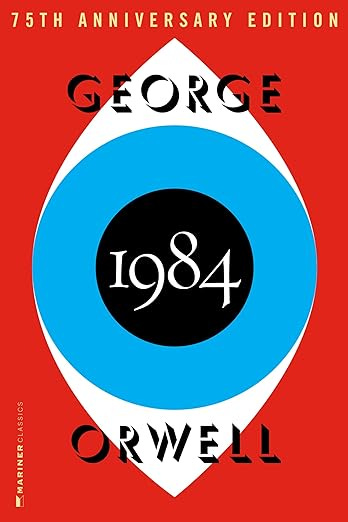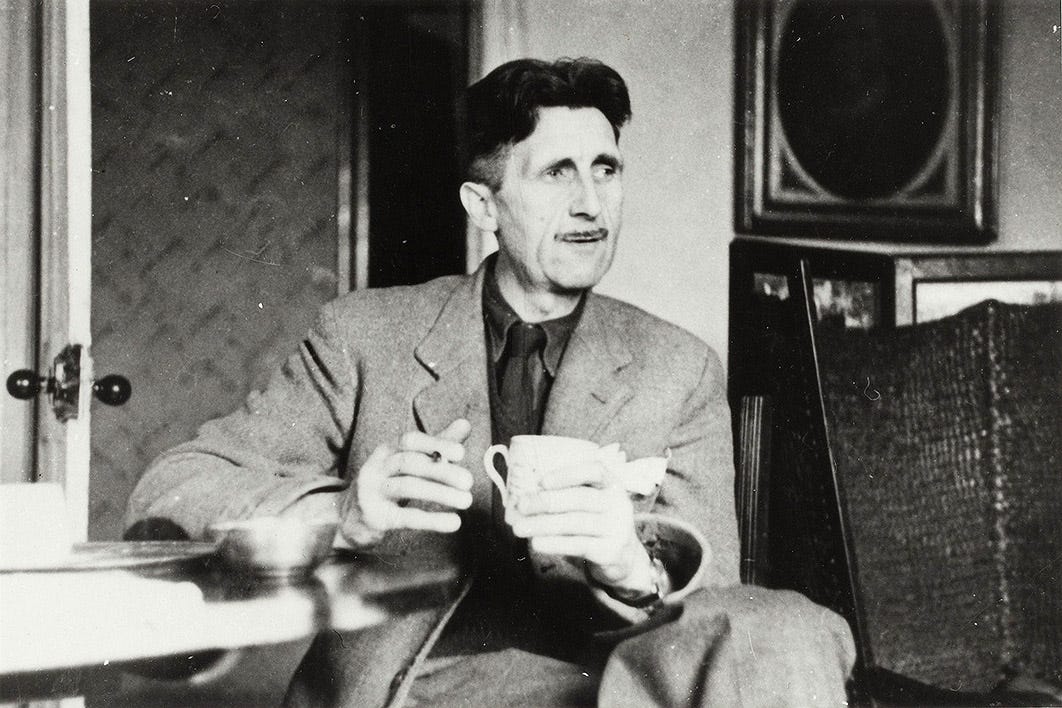“If you want a picture of the future, imagine a boot stamping on a human face — forever.”
― George Orwell, 1984
Genre: Science Fiction/Dystopian
My Rating: 5 out of 5 stars
1984 by George Orwell is the quintessential dystopian novel—the giant on whose shoulders all other dystopian novels stand. It deals with authoritarianism and its methods of using language and thought control to maintain power.
Winston Smith works for the Ministry of Truth where his job is to alter historical records to comply with the Party’s narrative. He is to dispose of flagged records through a “memory hole” in his desk that leads to an incinerator. Reading and writing are disallowed in this authoritarian society because the written word is evidence of the past. Citizens are told what to believe, even if it contradicts their own memory.
For example, the Party announces that chocolate rations have risen to 20 grams, when just the day before, Winston remembers the ration was 30 grams. But everyone celebrates the “increase.” To disagree would be considered a “thoughtcrime” and would incur severe punishment.
“Who controls the past controls the future. Who controls the present controls the past.”
The Party is constantly at war with one or another major power. This is central to the Party’s ability to control its citizens. Every day, citizens participate in “two minutes of hate,” where they are shown images of the Party’s enemies and are led in rabid chanting against their shared enemy. This is just one of their methods of psychological manipulation.
“War is peace. Freedom is slavery. Ignorance is peace.”
Winston is frustrated with the Party, represented by the ominous Big Brother, who constantly spies on its citizens through their telescreens and prevents any expression of individuality. His rebelliousness has led him to purchase a diary where he surreptitiously records his subversive thoughts. He believes there is an underground organization called the Brotherhood, and he is keen on recognizing subtle behavioral cues that might identify a fellow subversive.
Thought police are party members who report suspicious behavior. Even children who have been deputized as Junior Spies are encouraged to report on their own parents. He believes Julia, who he calls the dark-haired girl in the beginning, is one of these thought police. But Julia reveals herself to him as a fellow subversive and they have an illicit affair. Sex is also prohibited unless it leads to the creation of future party members and is referred to as one’s “duty to the party.” Eventually, he brings her to O’Brien, who he believes is a member of the Brotherhood.
People are so surprised when they see connections between this fictional narrative and what is playing out in our political arena. Orwell wasn’t predicting the future. He was familiar with authoritarian regimes of his day and throughout history. What should be surprising is that authoritarians are still using the same playbook and people keep falling for it.
2 + 2 = 5
This is what, in today’s post-truth world, we might call an “alternative fact.” In the Party’s interrogation of Winston Smith, they insist that:
“reality is not external. Reality exists in the human mind, and nowhere else . . . Whatever the Party holds to be truth, is truth. It is impossible to see reality except by looking through the eyes of the Party.”
Even in the face of external facts and evidence, the authoritarian insists their truth is superior and casts doubt on established sources of truth, like science or even photographic evidence. A good party member adheres to the truth he is spoon-fed, even if it defies their own logic or moral compass.
Brilliantly written. Hauntingly accurate. 1984 is a must-read for every citizen of the free world, because if you think you’re free, you might want to consider the Party’s truth—freedom is slavery.
If you enjoyed this book review, check these out!




